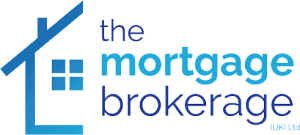Mortgages with Defaults
Let us Find You a Home
Get in touch today for Expert Mortgage Advice from your Local Mortgage Adviser
Home » Bad Credit Mortgages » Mortgages with Defaults
Getting A Mortgage After Defaults
What is a default notice?
If you miss a series of around three to six payments on accounts where you hold credit, the creditor will usually place a default notice on your account.
Defaults allow you fourteen days to repay any debt, after which time if you fail to resolve the default, your credit account will be closed and the balance becomes immediately payable.
What is a satisfied default?
When you resolve a default it is classed as being a ‘satisfied default’, although it stays on your credit report for the same length of time as an unsatisfied default.
If you have managed to satisfy any defaults on your account then lenders see this as improved financial responsibility and are more likely to be lenient when considering further finance applications.
Can I get a mortgage with a default?
It is possible to obtain a mortgage with defaults or a lower credit score. This is more likely to be achievable through a specialist lender. They are usually more willing to look at the reason behind your low credit score before making a decision.
Does the type of default make a difference with mortgage applications?
Lenders’ acceptance criteria will vary, but they are likely to consider applicants with unsecured debts more so than those with secured debts.
Your default severity will be considered on a general scale from most to least acceptable. Seeing This in advance can help you decide how likely a lender would be to consider your personal circumstances. It’s worth noting that additional failed applications will further affect a poor credit score.
This scale gives you an idea of how your defaults will be considered, from least serious to most serious:
Unsecured debts
- Mobile phone bills
- Home Utilities such as gas, electricity, water, and internet
- Bank account overdrafts and charges
- Credit card debt
- Unsecured loans
Secured debts
- Secured loans (such as car finance)
- Mortgage arrears
IVAs and Bankruptcy are considered more significant than defaults and will be very detrimental to your credit score. It’s unlikely you’ll secure a mortgage if you have an IVA or are declared bankrupt, although some very niche lenders may be willing to take on this level of risk.
Bad credit mortgages are an option for those with defaults and poor credit, however, expect mortgage rates to be much higher than typical mortgages. You will also have less choice of mortgage lenders, as high street lenders are unlikely to be an option.
Can I get a mortgage with outstanding debt?
Niche lenders who are more sympathetic to those with serious debts, such as IVAs and bankruptcy are more likely to consider applicants with debts outstanding.
Your chance of being accepted for a mortgage will always be higher where defaults have been satisfied, however.
How soon after a default can I get a mortgage?
As a general rule, the longer you leave it between defaults and your mortgage application, the more chance you have of being accepted. Lenders look at the date and the severity of your defaults when making a decision. Where you have shown that you’ve made an effort to satisfy defaults, you will have better potential.
Defaults remain on your credit file for six years whether or not they are satisfied, however, those that were satisfied quickly are far less detrimental to your overall score.
How much can I borrow If I have a default?
Those with a clean credit history will always achieve the highest loans, as mortgages are based upon risk and lenders will need to feel confident that you will keep up with repayments on your mortgage.
More caution will be used in calculating your loan if you have a history or defaults and poor credit, meaning that the lender will likely use a lower multiple of your annual income. Lenders usually offer between three and five times your annual income for a standard residential mortgage, however, those with poor credit will be at the lower end of that scale.
As an example, this is based on an applicant with an average income of around £30,000 per year:
Income £30,000 + good credit rating (x5) = mortgage of £150,000
Income £30,000 + poor credit rating (x3) = mortgage of £90,000
How can a Mortgage Broker help if I have defaults?
It can be difficult to establish, particularly when you have bad debts, whether or not mortgage lenders would consider your application. Mortgage Brokers have a clear understanding of the circumstances lenders are most likely to consider, helping you decide whether now is the right time for you to apply for a mortgage.
Brokers who specialise in mortgage advice for those with poor credit history are more likely to have access to the type of niche lender you would need. As well as ensuring you find competitive deals, they can guide you towards lenders that are more accepting of your circumstances.
Why Choose Us?
- Whole Market Advice
- Friendly and Professional Staff
- Manage the Entire Process
- Free no obligation initial quotation
- Decision in principal within minutes

